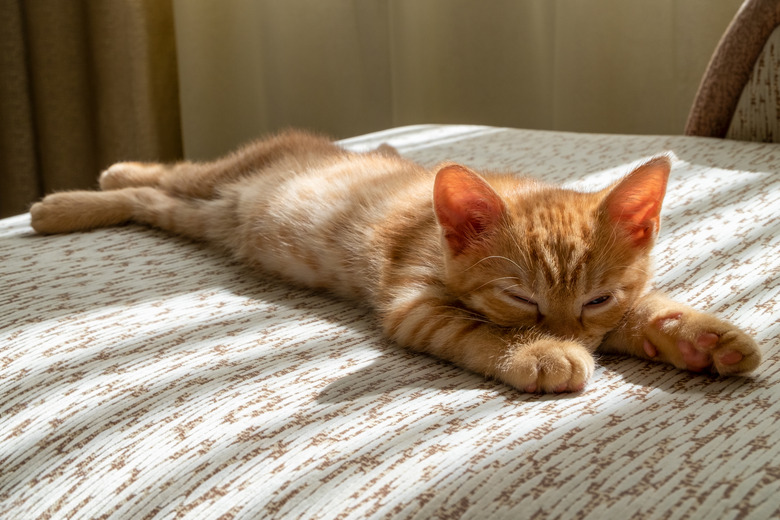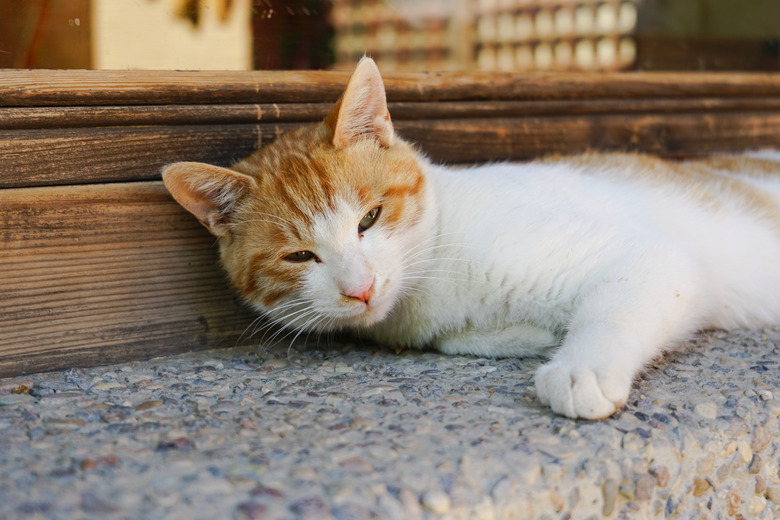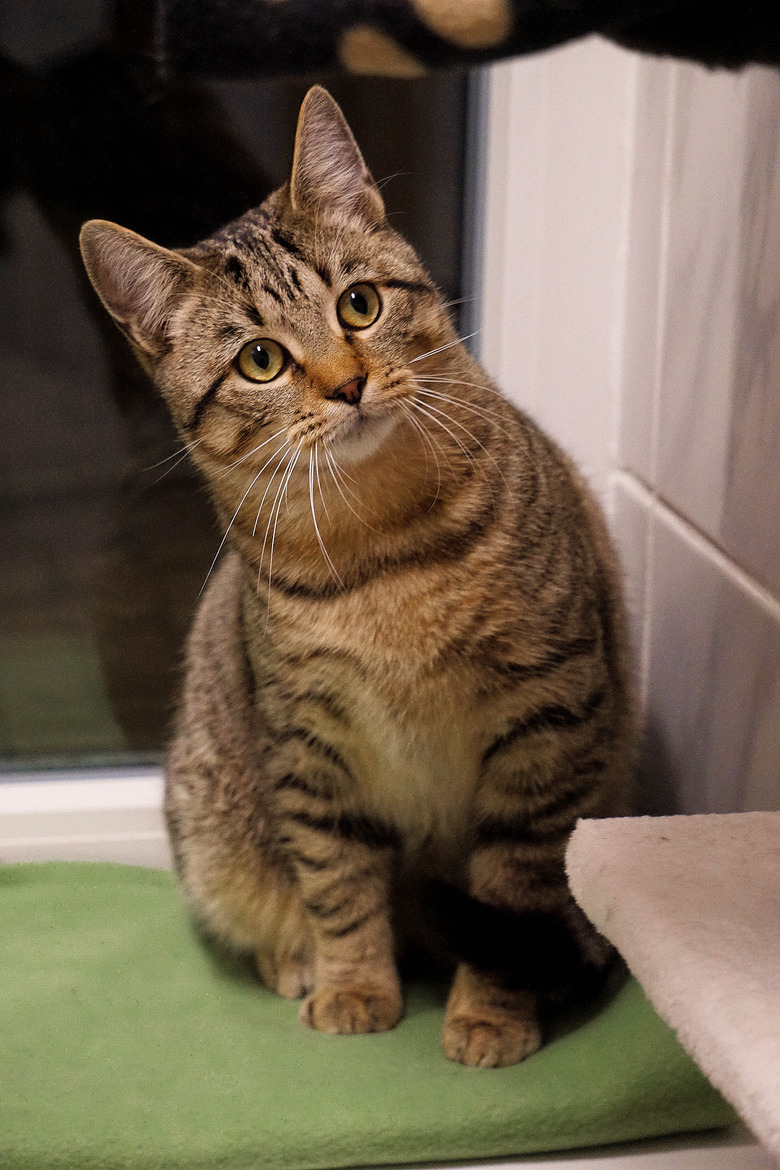Do Cats Like Music?
If you're like many households, the radio or a music streaming service is likely on all the time . . . especially as people are working from home more and the background noise can be music of our own choice rather than the sound of the microwave beeping. For those 30 million American households that are cat owners, that's a lot of music being played. What does science have to say about whether or not cats like human music, or even if they can hear it?
Can cats hear music?
Can cats hear music?
A 2015 study conducted by researchers at the University of Wisconsin, which is a study that many experts cite, says that cats don't really seem to care much for human music, but they do like music for cats. Perhaps unsurprisingly, the music the researchers created has sounds that sound like a cat's purr, along with other frequencies and with a pitch and tempo that they think cats like.
When composer David Teie set about creating music for cats for the study, the researchers took into consideration that the vocal range of cats is one octave higher than people. Another sound they added to their music for cats was the sucking sound cats make when they are nursing. To test, the researchers played two classical music sound samples and two cat music sound samples. More positive reactions like purring and rubbing against the speaker were noted for the cat music than for the human music.
The Smithsonian Magazine described the cat music as "like a slow Sigur Rós song played in the belly of a purring cat," and they went on to say that rather than human music, the best music for cats is likely to be music that resembles the tempos and frequencies naturally used in cat communications.
Follow-up study on cats and music
Follow-up study on cats and music
The University of Wisconsin study came out in 2015. A 2020 follow up study by the Louisiana State University School of Veterinary Medicine and published in the Journal of Feline Medicine and Surgery played three types of music to 20 different cats while they were getting a check-up at the veterinarian to see how they'd react. The cats listened to silence, classical music, and the special tempo music for cats. The cat music helped the cats remain more calm.
This study found that there was not a significant reduction in cat stress scores (CSS) for silence compared to classical music. However, CSSs were significantly lower for cat music compared to silence and in cat music compared to classical music. Cats were more easily handled when they listened to cat music compared to silence and classical music, but there wasn't much difference when silence was compared with classical music.
Cat hearing frequency range
Cat hearing frequency range
A cat's hearing range is quite broad, with the ability to hear high frequencies without losing the ability to hear lower frequencies. The journal Hearing Research says the hearing range of the cat for sounds of 70 dB SPL (sound pressure level) extends from 48 Hz to 85,000 Hz, giving it one of the broadest hearing ranges among mammals. By comparison, the AKC says that dogs can hear from 47,000 to 65,000 Hz. Humans can detect sounds from 20 Hz to 20,000 Hz.
Charles Snowdon, the University of Wisconsin researcher who kicked off the cat music fad, told National Geographic that, human music—which is made for our ears—has "positive effects on dogs, elephants, and chimpanzees, and negative or no effects on gibbons, baboons, horses, and lambs." Cats just don't get it.
A cat's vocalizations have more sliding qualities and pitch changes than do human speech or music, National Geographic says, and the frequency of their purr is pretty important too. That's why "species-specific" music made for cats is much more effective than anything made for our ears, even the most soothing classical music.
Frequency range of a cat purr
Frequency range of a cat purr
The frequency range of a cat's purr is from 25 to 150 Hz, which is well within the range of what humans can hear. We can also feel the vibrations, and some studies suggest that this frequency of a cat purring may even help heal wounds — for both humans and cats.
The music that cats most responded to also contained sounds similar to the frequency range of a cat's purr, which may explain why the cats respond more positively to the music made for cats than human music. The theory that "species-specific" music is what is most appealing seems to hold true for humans too — International Cat Care says that music pleasing to the human ear has a beat similar to the resting pulse rate of 66 beats per minute.
In conclusion
In conclusion
When cat stressors were examined by researchers, classical music was more appealing to cats than silence. But what cats really seem to like is music for cats. Music made specifically for cats contains sounds that match cat vocalizations, in a higher frequency and pitch along with sounds in the frequency range of a cats' purr. Human music just doesn't seem to do much for cats but cat owners who want to please their feline friends can explore the cat music created by composer David Teie which takes into consideration the sounds most pleasing to a cat.
References
- PR Newswire: 68 Million U.S. Households Have Pets, Expect 4% Growth in 2020, Reports Packaged Facts
- University of Wisconsin: Move over Mozart: Study Shows Cats Prefer Their Own Beat
- David Teie: Music For Cats
- Smithsonian Magazine: Here's What Music Specially Composed for Your Cat Sounds Like
- BBC: Classical or lo-fi? What Kind of Music Do Cats Like to Listen To?
- AKC: Dogs Don't Have a Sixth Sense, They Just Have Incredible Hearing
- Hearing Research: Hearing Range of the Domestic Cat
- Neuroscience: The Audible Spectrum
- National Geographic: Listen: Why Scientists Have Created Music Just for Cats
- International Cat Care: Proof That Cats Love Music Too
- Journal of Feline Medicine and Surgery: Effects of Music on Behavior and Physiological Stress Response of Domestic Cats in a Veterinary Clinic




